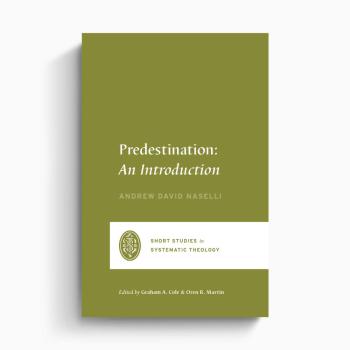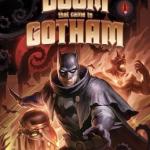A Review of Midsummer Night’s Dream by William Shakespeare
By PAUL D. MILLER
I played a bit part in A Midsummer Night’s Dream in my sixth-grade English class (I was Peter Quince). My freshman year of high school I saw a full production—the first live Shakespeare play I ever saw—and fell completely in love with the theater. I had the joy of revisiting this play at the Shakespeare Theater in Washington, D.C., over Thanksgiving weekend.
Midsummer (c. 1596) is one of Shakespeare’s most lyrical, lighthearted, and fun plays. As a result, it has remained one of the most popular and most frequently performed of his works. Also, it is utterly ridiculous.
The story follows a trio of lovers: Oberon and Titania, monarchs of the fairy world; Hermia and Lysander, lovers attempting to elope against Hermia’s father’s will; and Helena and Demetrius—where the former’s love for the latter goes unrequited. The four mortals wander unknowingly into the realm of the fairies. Oberon sends his minion, Puck, to try to help. Identities are mixed up, lovers quarrel, and hilarity ensues. Puck, looking on, exclaims “Lord, what fools these mortals be!”
The spirits of the fairy world are not much wiser. Oberon makes Titania fall in love with a man whose head has been replaced by that of a donkey. She fawns all over him while Oberon and Puck get their laughs. Puck is played as a prankster and an active abettor of the lovers’ comic misunderstandings. The other sprites flit about tittering, laughing, and mocking.
Throughout the play, Shakespeare holds up the fickle nature of romantic love for mockery. Puck and Oberon use a magical flower to make various characters abandon past lovers and make fools of themselves by falling into love with someone new. Some of the play’s best laughs come from these sudden changes of sentiment. But you hardly need a magical flower—I could envision a production of the play that sets the stage in an American high school. Young love is as potent as a magic flower—and just as capricious. 
The plot summary doesn’t sound like the stuff of one of the most enduring and revered works in the English language. But that should tell you that plots are surprisingly unimportant in the quality of stories. More important than what happens is how it happens. The most simplistic or absurd plots can become classic stories if told right.
The how of Midsummer is magic. The story takes place in an enchanted world (literally) in which sprites and fairies flit about on mysterious and meddlesome errands, whose purpose is beyond the ken of mere mortals. The language is full of references to dreams, including Puck’s parting monologue to the audience (“If we shadows have offended, Think but this, and all is mended, That you have but slumber’d here While these visions did appear.”). Most productions typically evoke a dream-like quality in their visuals and lighting. In a key passage, Bottom, upon waking from his enchantment, tells us
I have had a dream, past the wit of man to
say what dream it was…The eye
of man hath not heard, the ear of man hath not
seen, man’s hand is not able to taste, his tongue
to conceive, nor his heart to report, what my dream
was.
This is a play on 1 Corinthians 2:9: “Eye hath not seen, nor ear heard, neither have entered into the heart of man, the things which God hath prepared for them that love him.” The sense that Shakespeare evokes in Midsummer—that we live in an enchanted, magical world, and that the true nature of things is so deep and mysterious as to be beyond the powers of human language or comprehension—is essentially true. There really is a supernatural world just beyond our senses that surrounds and permeates us. We really can catch glimpses and hints of this truer, deeper, reality; as Bottom does in his waking speech. There really is a hidden hand moving all things for our delight and joy, as Oberon does for the mortals.
Of course there are differences. God is not bumbling and vindictive, as Oberon is. Nor is our ultimate delight marriage, as it is for the lovers in the story. No fictional story can parallel Christian doctrine in its entirety: it would no longer be fictional if it could. The only perfectly true story has already been told.
G.K. Chesterton famously suggested that Christianity’s ability to account for our instinctive sense of the enchanted nature of reality proved its superiority to the dry, materialistic visions of the secular Enlightenment. I think he was right. Stories like Midsummer capture this sense. Telling these kinds of stories to each other is one way we can stretch our minds and get them in the right shape. That’s why reading Midsummer and stories like it remain not just an essential part of a good education, but an enchanting delight as well.












